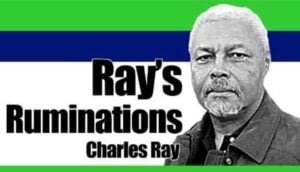• CHERYL G. CRUZ
Bacolod Mayor Alfredo “Albee” Benitez said May 17 that the city will resume the apprehension of illegal e-bikes on May 24.
Benitez said he met with punong barangays and other stakeholders Friday and reminded all to abide by Memorandum Circular (MC) 2020-036 of the Department of the Interior and Local Government (DILG).
The memorandum prohibits tricycles, pedicabs, and motorized pedicabs or e-bikes from operating on national highways, the mayor said, adding he also reminded the barangays to submit accredited e-bike operators in their respective areas.
He thanked barangays 12, 13, 14, 16, 17, 18, 22, 34, 35, 36, 38, 40, Banago, Bata, Cabug, Estefania, Felisa, Handumanan, Granada, Pahanocoy, Vista Alegre, and Villamonte for early compliance.
“Ang ila listahan amo ang aton basehan sa paghatag authority to operate sa mga e-bikes sa ila mga barangays,” Benitez said in a post, adding that other barangays have until May 20 to submit the list of e-bike operators.
“The Bacolod Traffic Authority Office (BTAO) will apprehend those e-bikes without proper permit starting on May 24. Ini tanan para sa safety sang aton mga commuters kag drivers sa aton dalanon,” Benitez stressed.
MC 2020-036, signed by then DILG secretary Eduardo Año, states that “to better ensure safety, no tricycle or pedicab should operate on national highways utilized by four-wheel vehicles greater than four tons and where normal speed exceeds 40KPH. This prohibition includes the use by tricycles and pedicabs of national highways for crossing and making a U-turn.”
Año also ordered local government units to review all existing tricycle and pedicab routes within their areas of jurisdiction, and to modify it accordingly, pursuant to the absolute prohibition imposed under MC 2020-036.
DILG Secretary Benhur Abalos also issued MC 2023-195, dated Dec. 6 last year, to reinforce the prohibition on tricycles, pedicabs, and motorized pedicabs on national highways, and to urged all local chief executives to reorganize or re-convene their Tricycle Task Force to update the Tricycle Route Plan (TRP) that would include penal provisions for violators.
The TRP must contain the schematic map of the tricycle routes; install visible and appropriate signages, marks for lanes, and other safety measures to guide and protect all vehicles; and the penalties to be imposed on violators, among others.
“It is unfortunate that many LGUs have not been strictly implementing such regulations, which often result in traffic congestion and accidents,” Abalos had said in a statement, adding that while tricycles and pedicabs “provide accessible and affordable modes of transportation, the safety of drivers, passengers, and road users are of utmost importance.”
City Ordinance 185, series of 1997, regulates the operation of tricycles and the grant of franchise, or motorized tricycle operator’s permit (MTOP), for their operation, within the territorial jurisdiction of Bacolod.
Section 8 of the ordinance prohibits all types of motorized tricycle, whether private or for-hire, within the downtown area, bounded by Lizares Street on the south, turning right to Yulo Street then to Rosario Street connecting to San Juan Street on the west; Aquino Drive on the north connecting Lopez Jaena Street on the east, up to Amelia Street;
Along the national highways/roads, such as but not limited to Araneta highway, from Lizares Street up to the Bago City boundary; Lacson Street, from B.S Aquino Drive Lacson up to Talisay boundary; circumferential road;
Burgos Street, from Lopez Jaena junction up to Granada; B.S Aguino Drive, from Burgos junction up to the drydock of Sto. Nino stop; within the area bounded from the east by circumferential road to the reclamation area, North Drive and up to south bounded by Magsaysay Avenue; and along Bacolod-Alijis-Murcia road, from the Araneta junction up to boundary of Murcia. | CGC




